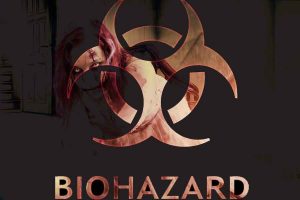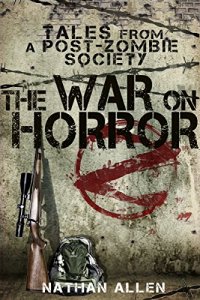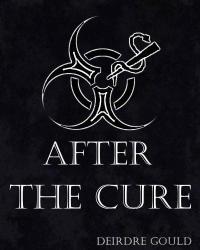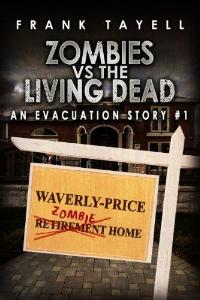At the time of writing seventeen of our twenty long-term free horror books are zombie-themed. They’ve even shambled their way into sci-fi, action, fantasy and children’s.
Shambling might not be the right word any more. The modern zombie isn’t the lurching corpse of Romero’s “Night of the Living Dead”, or more lately of “Shaun of the Dead”. Perhaps partly because of Shaun — as Universal found out in the thirties, once a horror villain is spoofed audiences don’t take it seriously — many authors have gone the route of Twenty Eight Days Later.
Zombies no longer rise from the grave because they were never in it. A new focus on scientific causes has replaced the horror of the unknown with the horror of the possible. Rather than undead, zombies are now often living people affected by bioweapons, viruses, toxic chemicals, bacteria, fungal infections (thank you Last of Us) and in one memorable case brainwashed by web mal-ware.
The modern not-dead zombie has strange echoes of the original zombie of voodoo myth, a victim with their soul bound, under the control of a higher power. These traditional zombies can be saved by salt, and similarly there are methods to save some of these zombies…which produces an altogether new kind of horror.
If the zombies are living people infected by a disease, then they can be cured. Knowing that a cure exists would have a devastating affect on non-zombies, who may have had to kill friends and relatives to survive, and now have to live with the fact they could have been saved. Worse, once cured, how would the former zombies take it, especially if there was no merciful amnesia. How could they live knowing what they had done?
Many authors have explored the aftermath of a zombie apocalypse, but usually as an afterthought. Now authors are handling it as the main thrust of the books. The threat may have been tamed, but it isn’t gone and the question is how to pick up the pieces.
Deirdre Gould’s After the Cure starts with the end of the apocalypse and explores the problems in depressing detail, walled communities split between immune and infected, the trials of those who took advantage of the chaos, and society trying to rebuild with too few people.
By contrast, in The War on Horror which is dark humour as well as horror, zombie collection is a government-licenced activity for private contractors. Zombies have rights, mainly for their still-living friends and family, and there are activists who think they should have more.
There is one other interesting change to the trope. While the horrors of zombies in the original were tied up with other supernatural and dangerous entities, the modern stories rarely have zombies crossed with ghosts or other such creatures. The horror seems to be the world people know invaded by the unknowable other and destroyed utterly.
Zombies themselves have gone from the mindless, incredibly strong, slaves of myth, to brain-eating and slow but inevitable killers in Western cinema and literature, and now to fast, vicious, predators.
The zombie hunter on the other hand has hardly changed across time, and is much the same in many of the books. Whether male or female, they are almost always the classic ‘everyman’, someone with an undistinguished career who rises to the challenge: Truck drivers, retirees, lawyers, journalists… If there is a scientist or organised military group in the story they will almost always be a secondary characters to the viewpoint ones. Again this appears to be about bringing the horror home — or possibly just because of the cultural impact of Ash Williams.
The other common factor is that more than any other type of stories that cross our queue, zombies stories are more likely to have downer endings — illustrated graphically in the case of one from the point of view of a child who gets eaten.
While the stories also tend to have a lot of graphic horror, the nastiest parts of the best stories tend to also be the psychological. Frank Tayell’s Evacuation series, about zombies taking over Britain, embodies this completely, turning entire stories around on one line or encounter.
So why are zombies suddenly so popular as an ebook genre? It could partly be because of The Walking Dead television show, which has produced a flood of imitators and brought zombies to mainstream attention again. However the stories have been published over several years, so this isn’t necessarily a flood of new books being published. It might simply be that with the focus of it from the mainstream, books that have been around for some time are getting more attention. That said, several of the books were standalones which have suddenly gained sequels. There are also a lot that appear rushed with poor proofing and a failure to spellcheck and the notorious cry “this needs an editor” has been raised many times.
While these are currently very, very, hot it is possible that zombies will burn out, like vampires. When a topic only has a single major mainstream driver, popularity can come and go quickly. When Twilight ended, vampires have slowly dropped back (helped by a rejection of the Twilight type for the traditional undead monsters). Likewise the number of Pirate books we’re seeing tailed off after Pirates of the Caribbean 3 and has really slowed after 4.
With zombies, the driver may well be the Walking Dead show. If the number of books coming out remains this high after the show has ended, and the audience is there, then it may establish an ongoing trend in horror, but it seems more likely that popularity will decline, and with it the sales of any zombie story that has not created its own following and universe. While the zombie story itself is unkillable, I suspect there may be some thinning of the ranks ahead.








